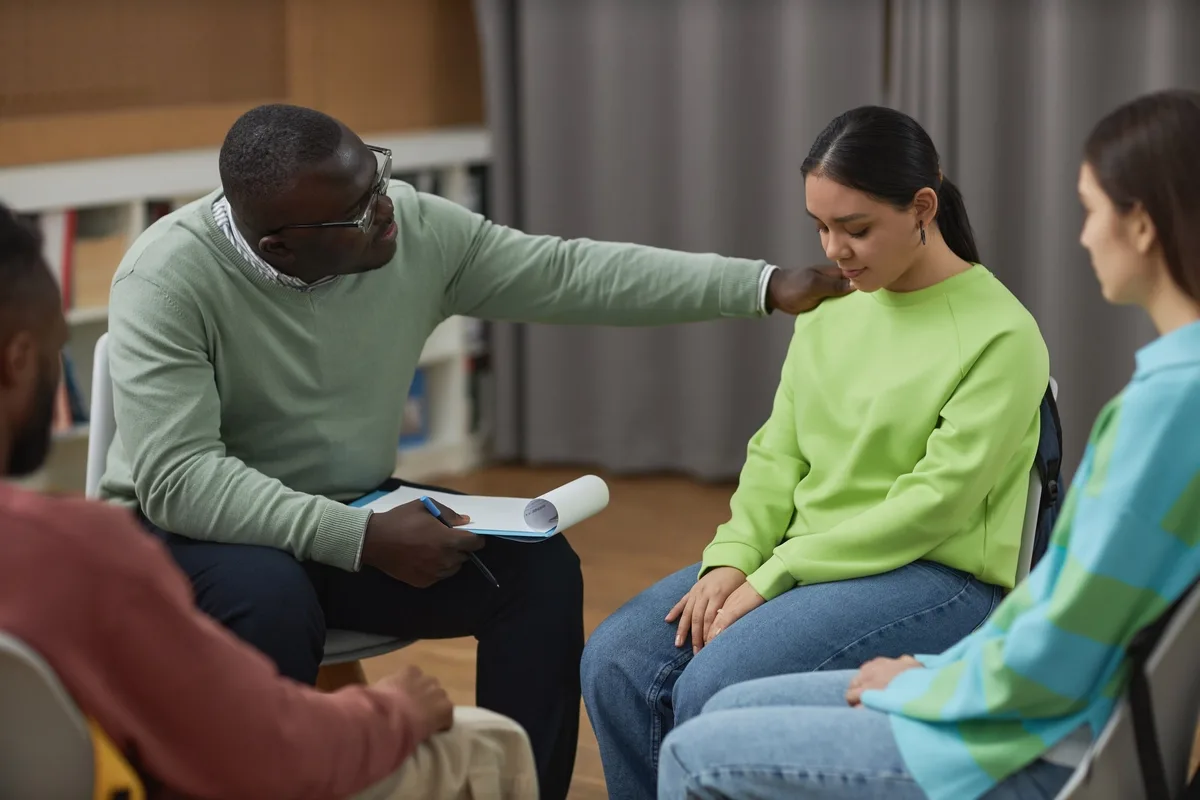24/7 Helpline:
(866) 899-221924/7 Helpline:
(866) 899-2219
Learn more about Dual Diagnosis Rehab centers in Buena Park
Dual Diagnosis Rehab in Other Cities

Other Insurance Options

Providence

Magellan Health

BHS | Behavioral Health Systems

BlueCross

Amerigroup

Health Net

Holman Group

PHCS Network

Kaiser Permanente

Meritain

Cigna

Multiplan

Coventry Health Care

EmblemHealth

Premera

Highmark

WellPoint
Beacon

BlueShield

Sliding scale payment assistance

Child Guidance Center
Child Guidance Center is a private rehab located in Buena Park, California. Child Guidance Center sp...

AA – Alcoholics Anonymous
AA – Alcoholics Anonymous is a non-profit rehab located in Buena Park, California. AA – Alcoholics A...















